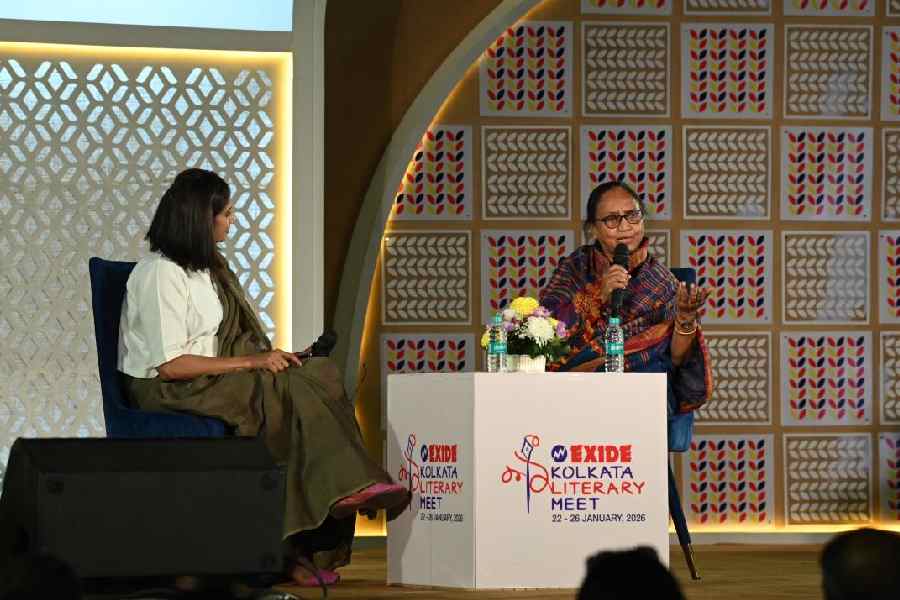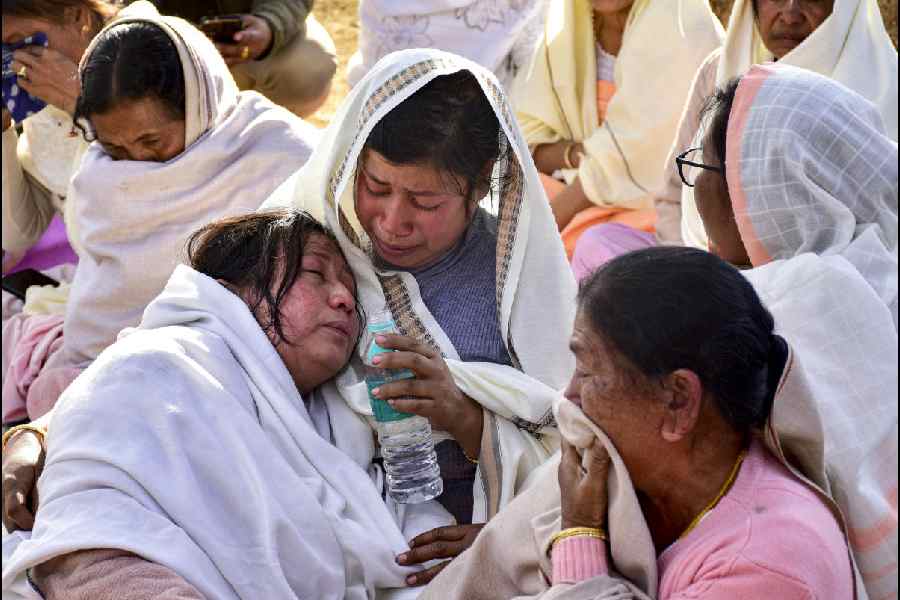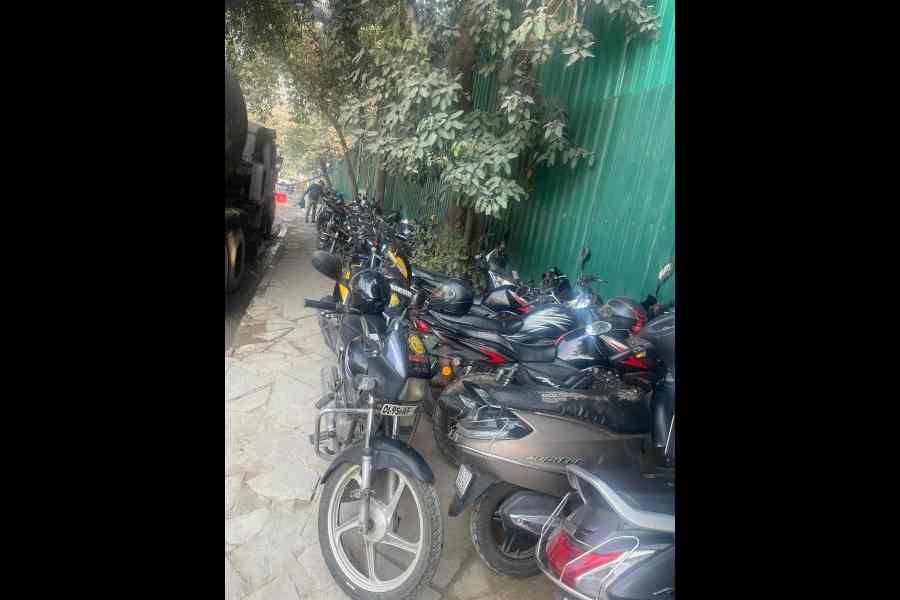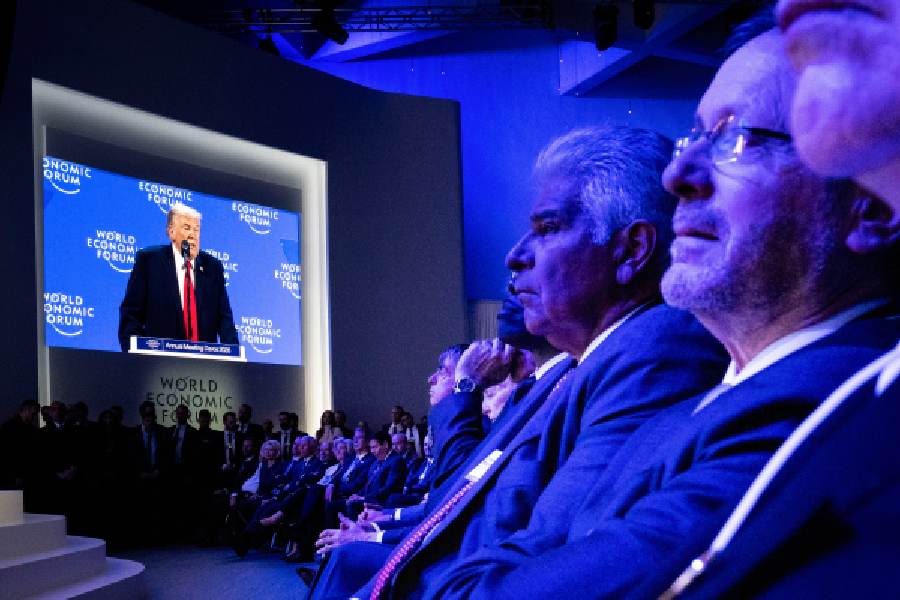Inside the temple of the mind
 |
The City of Love (Penguin, Rs 295) by Rimi B. Chatterjee recreates the fascinating and forbidding aura of 16th-century India in turmoil. Set in the fifty years after Vasco da Gama’s arrival at Calicut, this is the story of four intersecting lives — a fugitive Castilian trader, a Moorish pirate, a Tantric and a tribal girl. Each of them embarks on a journey of discovery, albeit to different ends. The plot moves from Chittagong to Gaur, against the backdrop of European and Mughal imperialism. The poetic and poignant prologue talks about the sailor’s longing for the forbidden city and the legacy of da Gama’s humiliation and vengeful return. At a time when newer faiths infringe upon ancient ones, individuals are made to question their systems of belief. In the end, only one protagonist finds the City of Love, helped by the eternal virtues of truth and friendship.
To the City of Paris: Stories (Tarjama, Rs 150) by Peter Bichsel was written in the early Seventies, but published twenty years later. This bilingual edition is its first appearance in English, with Michael Kuttner translating from the German. Bichsel, active in the Social Democratic Party of Switzerland, has been an untiring critic of Swiss conservative society. These stories are about ordinary people. But Bichsel’s criticism is tempered with warmth and admiration for human life, which colour his realism. Syntax and narrative forms are often innovative and experimental. Bichsel can construct a powerful tale even in a couple of paragraphs, as he does in “To Outlive”.
Shalom India Housing Society (Women Unlimited, Rs 250) by Esther David depicts the dilemma of the last Bene Israeli Jews in India through a fictional society formed in Ahmedabad after the 2002 riots. Through the portrait of, among other things, generational conflict, David’s novel asks how the Bene Israelis connect with other Indian communities, and whether they ought to remain in India or leave for Israel. It also studies the concepts of home and social identity. Holding the narrative together is the prophet, Elijah, to whom everyone turns in times of trouble. David’s prose is unpretentious and firm.
Getting on with others: How to teach your child essential social skills (Macmillan, Rs 195) by John Cooper tells parents how to help develop three necessary social virtues in their children: cooperative behaviour, basic social skills and an ability to solve social problems. Cooper, a clinical psychologist, emphasizes the need for children to appreciate others’ feelings and to be assertive without being anxious. The book is premised on the truism that cooperative children are more successful at school and in life.
 |
Once Upon a Time in the Soviet Union (Full Circle, Rs 295) by Dominique Lapierre narrates how Lapierre and Jean-Pierre Pedrazzini, then popular reporters with Paris Match, obtained Nikita Khrushchev’s permission to cross the Iron Curtain in 1956, and travelled 13,000 kilometres on Soviet soil. Accompanied by their wives, Lapierre and Pedrazzini had an adventure denied to other Westerners till then. Although the book claims to only “entertain” the reader it is about the erstwhile Soviet Union in the aftermath of Krushchev’s denunciation of Stalin. However, it is not a conclusive portrait of life behind the Iron Curtain. Lapierre denies any political agenda and tries to focus on the Soviet citizens who “spontaneously” welcomed them. We learn, for instance, that none of them had seen a car painted in two colours before or that only one Russian petrol pump sold high octane gasoline.










